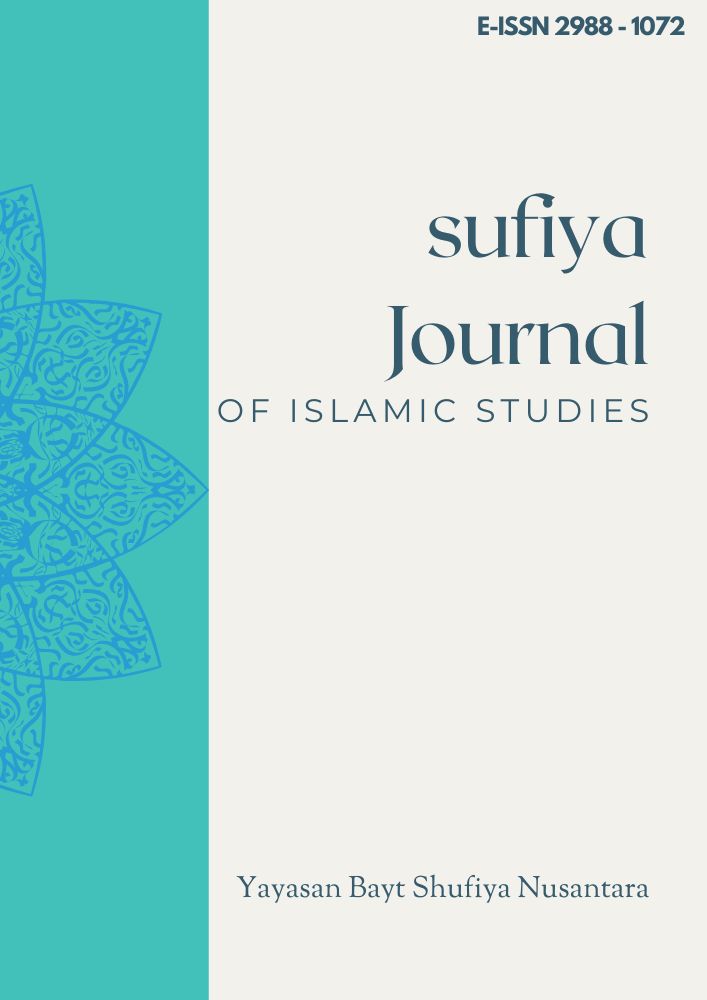Nilai-Nilai Pendidikan Akidah dalam Al-Qur’an
Keywords:
Education, Aqidah, Al-Qur'anAbstract
This study aims to examine the educational values of Islamic creed (‘aqīdah) contained in the Qur’an by emphasizing two main dimensions: ‘aqīdah as the foundation of social ethics and as a safeguard for the quality of faith. The study is motivated by the importance of understanding ‘aqīdah in shaping the holistic personality of a Muslim, both in their vertical relationship with Allah and their horizontal relationship with fellow human beings. This research employs a qualitative method using a library research approach, and the data is analyzed through a thematic interpretation (tafsīr maudhū‘ī) of Qur’anic verses related to the core principles of Islamic creed. The findings reveal that the Qur’an does not merely convey theological doctrine in a theoretical sense, but also instills practical educational values. These values include belief in Allah, His messengers, His revealed books, the angels, the Last Day, and divine decree (qadar), which are integrated with social actions such as giving zakat, keeping promises, exercising patience in adversity, and caring for the underprivileged. Thus, ‘aqīdah in the Qur’anic perspective plays a strategic role in shaping both the spiritual and social integrity of a Muslim. This study affirms that religious education in the form of ‘aqīdah not only shapes belief but also directs behavior toward a holistic and transformative religiosity
References
Dewi, S. (2021). Peran Generasi Muda Penghafal Al-Quran untuk Memperkokoh Aqidah Islam di Desa Sukaraja Kecamatan Air Putih Kabupaten Batu Bara. Hijaz: Jurnal Ilmu-Ilmu Keislaman, 1(2), 81–88. https://doi.org/10.57251/hij.v1i2.154
Nashirah Dwi Arini Faiza, Tia Angrelia, Siti Nuriyah Ahmad, Risya Purnama Sari, Fitria Mayasari, & Wismanto Wismanto. (2024). Aqidah dan Etika: Membangun Moralitas di Tengah Perubahan Sosial. Karakter : Jurnal Riset Ilmu Pendidikan Islam, 2(1), 72–79. https://doi.org/10.61132/karakter.v2i1.368
Paul Victor, C. G., & Treschuk, J. V. (2020). Critical Literature Review on the Definition Clarity of the Concept of Faith, Religion, and Spirituality. Journal of Holistic Nursing, 38(1), 107–113. https://doi.org/10.1177/0898010119895368
Shohib, M. (2024). Menelusuri Etika Bermasyarakat: Analisis Perspektif Wahbah Al-Zuhaili dalam Kitab Al-Tafsir Al-Munir Fi Al-Aqidah, Al-Shari’ah, dan Al-Manhaj. Al Qalam: Jurnal Ilmiah Keagamaan Dan Kemasyarakatan, 18(4), 2859. https://doi.org/10.35931/aq.v18i4.3612
Sulfanwandi, S. (2021). PEMIKIRAN TAFSIR AL-MUNIR FI AL-AQIDAH WA AL-SYARI’AH AL-MANHAJ KARYA DR.WAHBAH AL-ZUHAYLI. LEGITIMASI: Jurnal Hukum Pidana Dan Politik Hukum, 10(1), 65. https://doi.org/10.22373/legitimasi.v10i1.10518
Suryani, I., Ma’tsum, H., Santi, N., & Manik, M. (2021). Rukun Iman dalam Pembelajaran Aqidah Akhlak. Islam & Contemporary Issues, 1(1), 45–52. https://doi.org/10.57251/ici.v1i1.7
Downloads
Published
How to Cite
Issue
Section
License
Copyright (c) 2025 Muhammad Sultan Alfaidz, Wahyu Ariandhika Luthfi, Yasmin Mulya Fadillah Harahap

This work is licensed under a Creative Commons Attribution-ShareAlike 4.0 International License.














